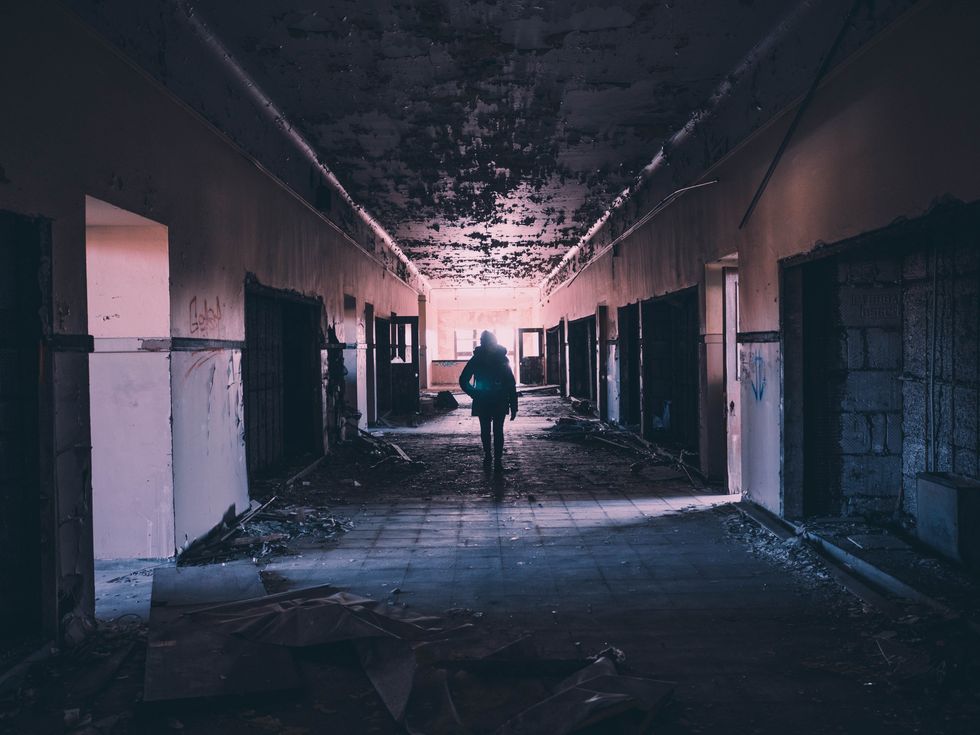6 Reasons Why Title IX Isn't Protecting Students
The pathway set out for students seeking help with sexual assault is flawed.
The protections against sexual assault college campuses need to provide must be easily accessible to everyone. That's because sexual assault on college campuses is a common problem. A problem that often goes unreported. Why is this a problem that is not being reported? Reasons vary from person to person; from being embarrassed to be called a liar to being terrified of any form of retaliation. We need to speak out against the injustices we face. Predators need to punished for their actions. Now, how can we help protect victims and exile predators in the "open-field" of college campuses?
In 1972 the Federal Civil Rights Law, Title IX, was passed. This law was established to prohibit sex discrimination at educational institutions; including sexual harassment and sexual violence. For many college campuses, this is the one and only option victims are geared towards. Though some argue we need title nine now more than ever, many disagree. Why? Well, Title IX has extensively dropped the percentage of successfully prosecuted cases from the time they started to the present day. It has become ineffective. Title IX is a critique of a system that protects sexual predators and hurts victims.
When talking to my friend, Mallory Clark, who has experienced going through Title IX, she described her situation like this: "I didn't report it to the police because everything was in his favor. I didn't have any support from Title IX."
Here and 6 reasons why Title IX is doing more harm than good in the status quo.
Title IX protects predators

Title IX can only successfully prosecute 9% of cases compared to 60% when they started. Why? That's because Title IX is informing predators on how to avoid "getting caught" or "getting in trouble". In a more detailed illustration; Title IX is educating predators on how to rape or sexually assault individuals. Predators are now modifying their tactics on their abusive actions in order not to fall under the laws Title IX has laid out. It's almost like telling predators "if you cut a sandwich down the middle, you'll be in trouble, but if you do it diagonally, you'll be good."
Emotional destruction is belittled

Unless an assault is categorized as "the worst accident in the world," Title IX won't actually do much about it. When a victim is called to give their testimony to Title IX officials, questions like "Did they force themselves on you?" "Did you say no?" "Were you drinking?" "What do you think caused this?" are asked in an interrogating-like style. Because of how Title IX makes it seem as if the only way you're a "true victim" is having been raped, victims feel as if maybe there really isn't any reason for them to be there testifying, much less any reason to feel broken.
An example of this is the way Title IX defines consent. They truly cannot frame or do anything about sexual assault/consent violations that are not clearly defined. Actions, like spreading naked pictures or stealing, are things Title IX still struggle to keep up with. For these reasons, many predators are clear off the radar because to Title IX, they didn't actually "do anything" physical to the victim, i.e. rape.
Something to consider: the physical and mental destruction a victim goes through on the daily having to see their abuser walk around freely, smiling, laughing, living. While the victim feels empty, disgusted and ashamed.
Their system takes forever

Title IX does not take immediate action. At least not in most cases. If they do it most likely because the student body was extremely involved in pushing actions to be taken not because Title IX was in a hurry. Title IX will tell us the process is inherently long. However, for as much red tape and bureaucracy they cite as reasons their investigations take so long, they sure do have a shocking amount of oversight. In a recent Title IX investigation at Boise State University, the investigation went four months over their deadline and the predator was able to graduate without them knowing about it. They claimed their hands were tied until the victim and their support system showed up with lawyers.
Title IX does not listen

Title IX has a lack of oversight. Title IX has been found to miss deadlines in approximately 54 college campus cases. This shows how little they pay attention to victims. Aside from not prioritizing their cases, Title IX has been giving victims bad advice. An example of this dates back to an incident at Baylor University where Title IX told the victim there was "nothing they could do about her situation" when there was. They simply did not want to deal with it.
The only agency able to regulate their behaviors is the office of ethics—which doesn't have enough funding money and only takes major cases into consideration. They can botch investigation after investigation without any consequences or ways to report or change their behavior
Gives institutional legitimacy to predators

Title IX makes it extremely difficult for survivors to find other avenues of justice. Hence why it is the one solution provided throughout college campuses on how to report and get help with any form of assault or discrimination. It makes it seems as if their validation and results are always correct. It makes it okay to call a survivor a "liar" if the invention was not successful.
The lack of an official Title IX coordinator

Though many college campuses may have an official Title IX coordinator, this is not applicable to everyone. In fact, Boise State University has not had a legitimate Title IX coordinator in four years. The person in charge at the moment isn't necessarily "qualified" for the position, yet they are still doing the job. This structural problem with Title IX is not being filled. This gets pushed off to the Gender Equity Center which is not equipped to handle the load of victims.


























